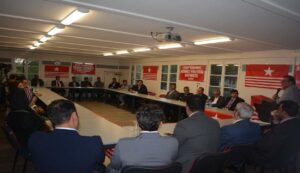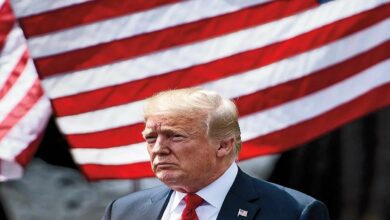Activists and experts gather at UKPNP conference to stress urgent need for integration of Jammu and Kashmir for lasting peace
The United Kashmir People’s National Party (UKPNP) held a major conference in the House of Commons in London, UK, where prominent politicians, activists, and specialists convened to underscore the pressing need of Jammu and Kashmir’s reunification.

The conference emphasized the significance of reunification for developing mutual understanding, lowering tensions, and encouraging productive discussion between India and Pakistan, framing it as a crucial step toward attaining lasting peace and stability in South Asia.
The event’s speakers urged the restoration of Jammu and Kashmir’s territorial integrity, claiming that doing so would spur regional collaboration and long-term peacebuilding. They said that in order to resolve the long-standing disputes between the two nations and bring about enduring peace in the area, the region had to be reunited.
The conference’s main focus was on safeguarding basic freedoms in Pakistan-occupied Jammu and Kashmir (PoJK).
The UKPNP Chairman, Shaukat Ali Kashmiri, spoke to the conference in a stirring speech, emphasizing the pain of the Jammu and Kashmiri people. “Their goals have been disregarded, their rights violated, and their voices muffled. Kashmiri urged British lawmakers, decision-makers, and government representatives to promote justice and accountability on the international scene, saying, “Today, we must act.”
In order to improve living conditions in Kashmir and address human rights issues in both Indian-administered and Pakistani-administered Kashmir, he urged the UK government to put pressure on Pakistan to follow the recommendations made by the UN High Commissioner in its 2018 and 2019 reports as well as to pay attention to the European Parliament’s 2007 resolution.
The UKPNP urged the Pakistani government and PoJK local authorities to respect international human rights norms, especially those pertaining to the freedom of speech, assembly, and expression. Repressive regulations, growing prohibitions on nonviolent public meetings, and other policies that threaten democratic government have drawn criticism.
Since these laws were seen as a hindrance to the restoration of a fair and democratic society, the conference called for their urgent repeal. In order to promote more local autonomy and self-governance, speakers also encouraged Pakistan to remove its external security administration from PoJK, along with its nominated officials.
The barring of pro-Kashmir political parties, such the UKPNP, from registering with the election commission in Pakistan-occupied Jammu & Kashmir (PoJK) was another important issue brought up. The conference strongly denounced coercive methods that undermined democratic values by forcing people and political parties to swear loyalty to Pakistan.
Delegates recommended the creation of a transparent election process to enable all political entities and people to engage freely and without pressure, and they called on Pakistan to eliminate discriminatory legislation that impeded peaceful political participation.
The summit also demanded that outlawed militant organizations in the area stop their activities and that terrorist infrastructure in the PoK be dismantled. Speakers emphasized that all governments have a basic obligation to defend life, liberty, and property, and they called for an urgent halt to the pervasive breaches of human rights. These included the overuse of force by security forces and abuses by extremist organizations, both of which have exacerbated regional instability.
One major barrier to peace was the reorganization of Islamist terrorist groups in Jammu and Kashmir, both before to and after elections. These groups undermine democratic institutions and the legitimate rights battles of the Kashmiri people by taking advantage of political unrest and local grievances to spread violence and extremism. In order to fight these forces and break the cycle of bloodshed, the conference urged the international community to work with India and Pakistan.
The recent regressive regulations that significantly limit freedom of expression, assembly, and association were also denounced by the conference. These acts were characterized as flagrant transgressions of international human rights legislation and the Universal Declaration of Human Rights. Delegates called for the urgent abolition of these repressive policies, arguing that they are ineffective in advancing efforts to settle the Kashmir problem.
Kashmiri also asked all UKPNP members and supporters throughout the globe to continue to be unwavering in their commitment to self-determination, peace, and togetherness. “Together, we can build a future where the people of Jammu and Kashmir can live in freedom, dignity, and harmony,” he said.
The UKPNP conference was a potent reminder of the continuous hardships that the people of Jammu and Kashmir experience, and it called for international action to guarantee that their rights be upheld and to clear the path for a fair and peaceful settlement of the Kashmir conflict.





